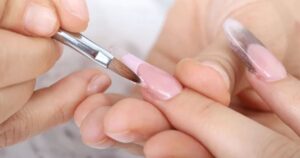Allergies can cause uncomfortable symptoms, But do you know that they can also link to hair loss? Yes, it’s true! When your body experiences an allergic reaction, it releases certain substances. These substances can disrupt the normal growth cycle of your hair. This disruption can lead to excessive shedding, thinning hair, or even bald patches. If you’ve noticed hair loss, it’s essential to understand the connection with your allergy symptoms.
Imagine waking up one day to find clumps of hair on your pillow, and you’re unsure about the cause. Can allergies cause hair loss? Let’s delve into this intriguing connection and uncover the truth behind whether allergies can indeed lead to hair loss.
It occurs when the immune system is scared of harmless substances. It can trigger a cascade of allergic responses. Hair loss can stem from various factors. These include genetics, hormonal imbalances, and certain medical conditions. This article will explore the relationship between allergies and hair loss. We will examine the potential causes and discuss preventive measures and treatment options.
Types of Allergic Reactions That May Contribute to Hair Loss
There are several types of allergic reactions, and you need to know about can allergies cause hair loss? It may contribute to hair loss.
Allergic Contact Dermatitis

Allergic contact dermatitis occurs when the skin comes into contact with an allergen. It leads to an immune response and then inflammation. An allergic reaction can affect the scalp, causing irritation, redness, and itching. Persistent scratching and inflammation can disrupt the normal hair growth cycle. It can lead to temporary hair loss.
Seborrheic Dermatitis
Seborrheic dermatitis is a common skin condition. Red, itchy, and flaky patches characterize it. These patches often occur on the scalp. Researchers believe an overgrowth of yeast on the skin and an inflammatory response are linked.
Untreated seborrheic dermatitis can cause hair loss. Excessive inflammation and itching can be associated with this condition. This inflammation and itching can damage hair follicles. It can also interrupt the hair growth cycle.
Alopecia Areata

Alopecia areata is an autoimmune disorder. It causes sudden hair loss in small, round patches. The exact cause of alopecia areata is unknown. Research suggests that a combination of genetic and environmental factors could cause it. Allergies are not related to alopecia areata. Studies have explored connections between autoimmune diseases and allergies, like alopecia areata.
Managing Allergies and Hair Loss
To manage allergies, take precautions, adapt your lifestyle, and use treatments. Here are some strategies to help manage allergies:
Identifying and Avoiding Allergens
Identify and avoid potential allergens to address hair loss caused by allergies. Talk to an allergist or dermatologist to get tested. Figure out which allergens are affecting you. Once you know what they are, use unique bedding that keeps allergens away. Keep your surroundings clean and stay away from things that trigger your allergies.
Treating Allergic Reactions
Controlling allergies can help prevent hair loss. Your doctor may suggest treatments like antihistamines, topical corticosteroids, or immunotherapy. Manage allergies to protect your hair and scalp health.
Maintaining a Healthy Hair Care Routine
To maintain healthy hair with allergies, follow a proper care routine. It means using mild shampoos and conditioners made for sensitive scalps. You should avoid heat styling and tight hairstyles. Do not use harsh chemical treatments. These steps will help protect your hair from more damage.
Preventive Measures and Treatment Options
Addressing the underlying allergic reactions can manage hair loss caused by allergies. People should also take preventive measures. Additionally, explore available treatment options. Here are some strategies to consider:
Allergy Management
- To prevent allergic reactions, find out what substances or triggers cause them. Then, take measures to reduce your exposure to those things. You can change your environment, use air purifiers, or avoid specific foods.
- To get medical help, talk to an allergist or immunologist. They can diagnose your allergies and suggest suitable treatments. They may recommend medications to manage your allergic reactions. They could also offer allergy shots (immunotherapy). Other treatments might be possible too.
Stress Management
- Practice stress-reducing techniques. Engage in activities that help reduce stress. Activities like exercise, meditation, yoga, or hobbies can bring joy and relaxation. Managing stress levels can contribute to hair health.
- If chronic allergies are causing a lot of stress, seek support. You can ask for help from friends, family, or a mental health professional. They can give advice and help with ways to manage the emotional effects of allergies.
Hair Care and Nourishment
- To maintain a healthy diet, eat various foods rich in nutrients. Include fruits, vegetables, lean proteins, and whole grains. Adequate intake of vitamins and minerals is essential for healthy hair growth.
- Handle your hair with care. Please don’t use harsh chemicals or expose them to excessive heat when styling. Avoid tight hairstyles that can strain your hair follicles.
- Take care of your hair by treating it with respect.
- Use mild shampoos and conditioners that are suitable for your hair type.
Medical Interventions
Topical treatments can address allergic dermatitis or scalp inflammation. These treatments include topical corticosteroids and other prescribed medications. They help reduce inflammation and promote hair regrowth.
- Platelet-rich plasma (PRP) therapy stimulates hair follicles and promotes hair growth. You inject concentrated platelets from your blood into the scalp.
- Hair transplantation is a surgical procedure. It can be an option for people with severe hair loss. If you want to know if it’s right for you, consult a qualified hair transplant specialist. They can discuss possible results with you.
Conclusion
In conclusion, can allergies cause hair loss? Hair loss is a complicated problem influenced by different things. It can sometimes be part of the issue. Hair loss is a complex problem affected by other things. It can sometimes be a part of this issue. Allergic reactions on the scalp can disrupt hair growth. These reactions include allergic contact dermatitis and seborrheic dermatitis. It can lead to temporary hair loss. Scientists have been studying the connection between allergies and autoimmune-related hair loss conditions. One of these conditions is alopecia areata. Yet, we still need to understand the exact relationship fully. Identify and avoid allergens, and seek proper medical treatment.
Maintain a healthy hair care routine. Taking proactive measures helps reduce the impact of allergies on your hair. It also promotes a healthier scalp.
Suppose you suspect that allergies may be contributing to your hair loss. For such situations, consult a healthcare professional, such as an allergist or dermatologist. They can check you and create a personalized treatment plan.








